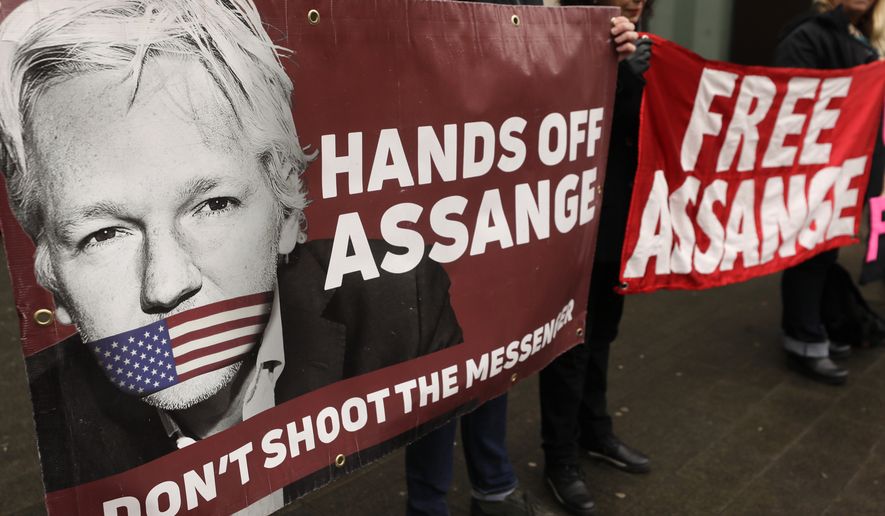Edward J. Snowden, the fugitive leaker wanted for spilling U.S. secrets, seemed unconvinced Tuesday by the White House touting press freedoms given its pursuit of WikiLeaks publisher Julian Assange.
Mr. Snowden, who admittedly gave classified documents to reporters in 2013, cited the U.S. prosecution of Mr. Assange while replying to remarks Vice President Kamala Harris made online the day before.
In a social media posting, Ms. Harris had said that “free press is critical to democracy,” adding the U.S. remains committed to “protecting and promoting a free and independent press everywhere.”
Mr. Snowden quoted that post on Twitter and contrasted it with the punishment Mr. Assange risks if found guilty of federal charges he faces involving his unrelated disclosing of classified documents.
“You’re seeking a 175-year long sentence for an internationally award-winning publisher of news,” Mr. Snowden tweeted, despite protests from the world’s leading newspapers, among others, he added.
Mr. Snowden, 37, previously cited the case against Mr. Assange, 49, while replying to a similar post lauding press freedoms Secretary of State Antony Blinken made on Monday, World Press Freedom Day.
“On World Press Freedom Day, the United States continues to advocate for press freedom, the safety of journalists worldwide, and access to information on and offline. A free and independent press ensures the public has access to information. Knowledge is power,” Mr. Blinken said Monday.
“This would be more persuasive if the White House weren’t aggressively seeking an 175-year sentence for the publisher of award-winning journalism of global importance—despite pleas from every significant press freedom and human rights organization,” Mr. Snowden replied.
Mr. Assange, an Australian, has been imprisoned in London for more than two years after being charged by the U.S. Department of Justice with a crime related to his running of the WikiLeaks website.
Specifically, Mr. Assange has been charged with violating the Espionage Act and the Computer Fraud and Abuse Act related to WikiLeaks and its solicitation, receipt and release of classified material.
The Trump administration had asked for Mr. Assange to be extradited to the U.S., and the Justice Department appealed when a British court judge ruled last year to reject that request.
Both tweets from Mr. Snowden, a former U.S. intelligence contractor, referred to a news report from February that said the Biden administration would continue to pursue Mr. Assange’s extradition.
Mr. Snowden noted that, in addition to several major newspapers, organizations including United Nations, Amnesty International and the American Civil Liberties Union have criticized the Assange case.
Among the sensitive material, Mr. Assange faces charges for releasing including classified diplomatic and military documents originating from the U.S. Departments of State and Defense, respectively.
Critics of the case against Mr. Assange have said it effectively criminalizes journalism and marks the first case of a publisher being charged with espionage for publishing classified documents.
The Justice Department argues Mr. Assange is no journalist, however, and prosecutors maintain he endangered the lives of sources whose identities were revealed in material released by WikiLeaks.
Mr. Snowden, who has also been charged with violating the Espionage Act, faces charges for leaking classified U.S. National Security Agency documents, meanwhile. He has lived in Russia since 2013.




Please read our comment policy before commenting.